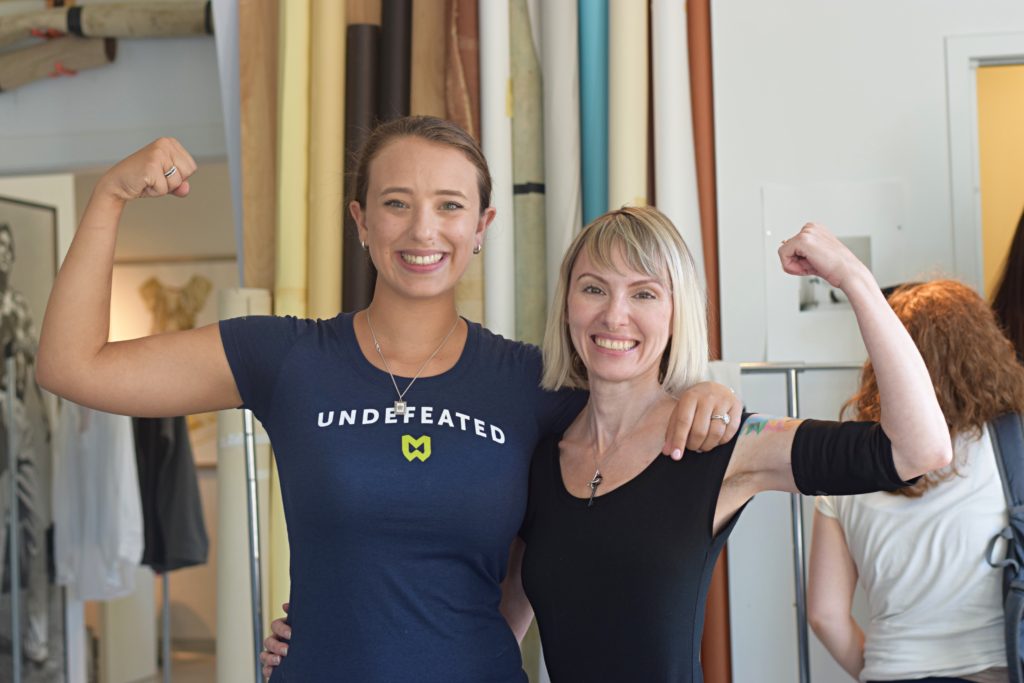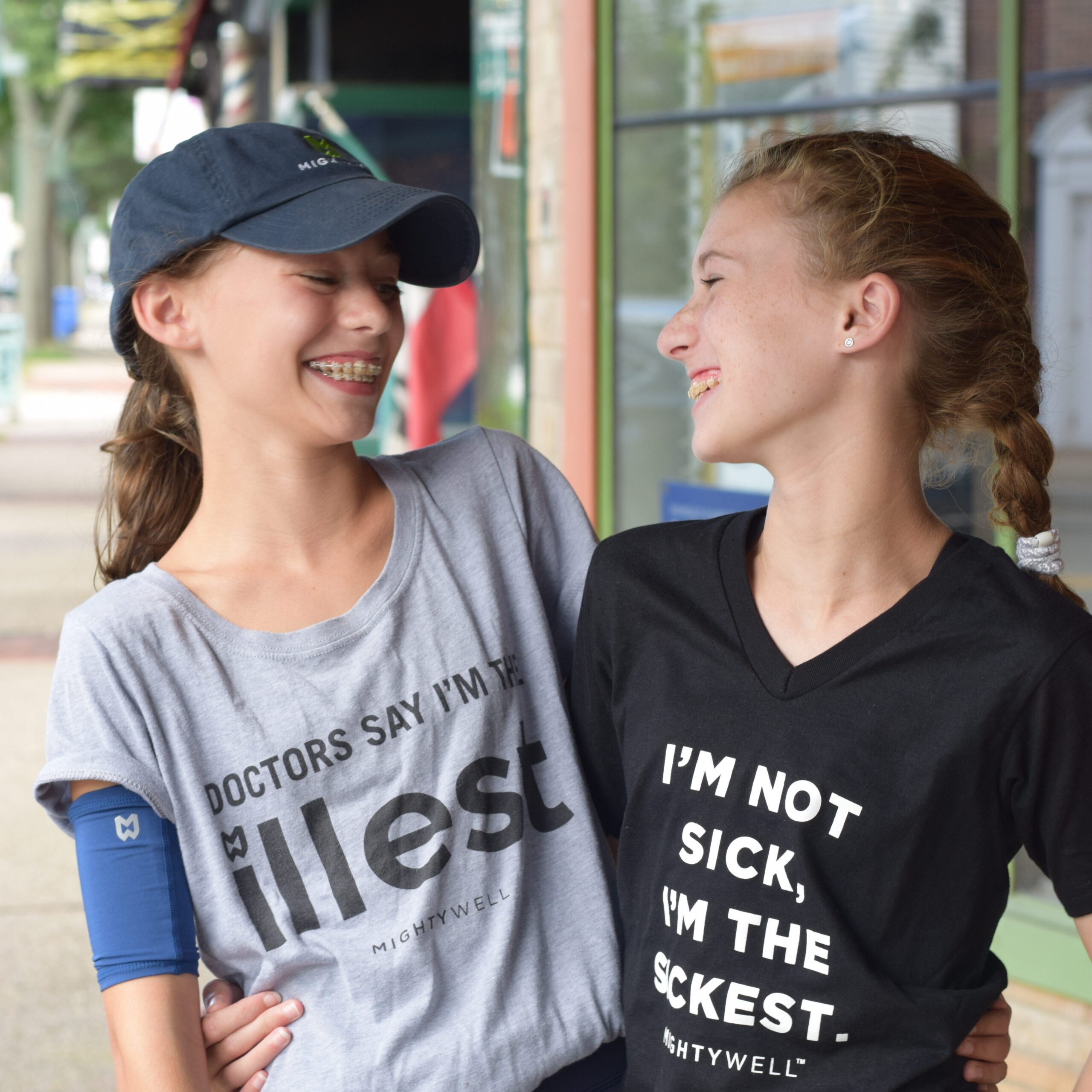Most kids stay home from school when they feel sick. It’s comforting to not have to be around others, to let your brain unplug from the rigor of classes, and to just care for yourself — whatever that means in each moment. For those of us with chronic illnesses, we have to find a way to be at school even when we feel sick. This may mean finding ways to keep up with online learning from home or from hospital rooms, but usually it means showing up to school and all that it entails.
School is a time to socialize with peers and find where we fit in. It’s a time to figure out who we are and communicate these identities to others. It is also where we grow our minds and build up the skills and confidence we’ll need later in life.
I spent my childhood with bouts of chronic illness that no one understood. As an adult, I became a teacher, only to find myself too sick to make it through a full school day. I found my way to alternative education programs, which could accommodate my needs more. I got to meet so many wonderful students who also struggled with chronic symptoms, and help them advocate for themselves. Now, as a new mom, I find myself thinking about how my genetic disorder will affect my daughter when she goes to school.
I’ve experienced from every angle how illness impacts schooling. It makes social interactions more vulnerable. It becomes difficult to try and fit in. Finding your identity is complicated by the massive identity of “patient” and all the baggage it carries. Learning is greatly impacted by distracting symptoms and impenetrable brain fog, not to mention the days you need to miss school.
In short, being sick at school is tough… really, really tough.
But it can be made a little easier. The beauty of Mighty Well is that we share with our community the supports we wish we’d had. So, as a sick student, teacher, advocate, and mom, here are some tips for surviving the school year with chronic illness:

1. advocate for what you need
Ever find yourself thinking “school would be so much better if only I could…”? While it can be a battle to make these changes happen, thanks to the Americans with Disabilities Act, schools are legally required to meet students’ needs! Requesting an accommodation to support a need or remove a barrier can make a massive difference. This could look like different seating, access to food and bathrooms throughout the day, longer test-taking time, fewer assignments, etc. Not sure what accommodations would help? Take some time on tough days to think through where the challenging moments started and what would have made a difference. You can also talk to your school’s special education department to brainstorm what the barriers may be, and what supports would help.
Christina Costa, a teacher with brain cancer and one of our Friends in the Fight, is a champion for accessibility in classrooms. She has incredible resources for teachers to make their classrooms more accessible, like her Extreme Makeover: Syllabus Edition.

2. organize your gear
Getting organized is key for any student, regardless of health status. When you’re trying to balance a chronic illness on top of everything else, however, organization is a game-changer. This is especially true when struggling with brain fog and other forms of cognitive dysfunction common with these conditions. These products were created by patients to solve the problems that we’ve encountered over the years:
Self Care Case
Need a place to discreetly carry your meds, emergency snacks, EpiPens, and other supplies? The Self Care Case is sleek, fits easily in a backpack or bag, and has a strong outer surface to protect your items from anything else that gets thrown in your bag! Inside are enough pockets, slots, dividers, and label options to keep your gear absurdly organized and easy to find.
“As someone who has to carry around eight different medications and a nebulizer, this has been a real space saver. I think this will reduce the amount of space my meds take up in my backpack when I go back to college.” – Kailey
Fluid Motion Backpack
Have too much medical gear to fit in a small Self Care Case? You’re not alone. The Fluid Motion Backpack holds all your regular school supplies — including a laptop pocket — but also has space for infusion or nutrition bags. Designed by patients, it includes often-overlooked details, like insulated and sharps-safe pockets. The best part is that it looks like a regular designer backpack, so you can feel confident and classy!
“It holds all of my medical supplies including all sorts of emergency medical supplies, my feed pump, my 1200 mL feed bag, an ice pack to keep my feeds cool, and all my school work… It’s such a life saving pack and does everything I wanted it to do and more.” – AJ
the Brain Fog Fix planner
Do you tend to miss appointments and forget to take your meds? Meet your new BFF. The Brain Fog Fix planner has enough space to write down appointments, keep track of treatments, and display important reminders. It even has a section to record your symptoms and find gratitude!

3. don’t go it alone
Whether you proudly share your health status with everyone or keep things pretty close to the chest, it is helpful to have at least one ally at school. Keeping everyone in the dark is not only lonely, but it may lead to feelings of shame that tend to linger. The more people are in your corner, the more supported you will feel and the less shame will take hold. This could be one trusted teacher, a friend, or the school nurse. No matter who it is, knowing that someone in the building is aware of your situation is comforting.
When you do feel ready, sharing your story is incredibly healing! It can turn shame into pride and isolation into connection. Being vulnerable not only brings us closer to others, but it also gives them an opportunity to share their challenges. Enough people live with hidden chronic illnesses that, if you share widely enough, you are bound to run into others with similar stories who were also afraid to share. The friendships we build with people who know the same struggles are powerful sources of strength.
Want to be part of our community of others who “get it”? Join the Friends in the Fight facebook group!

